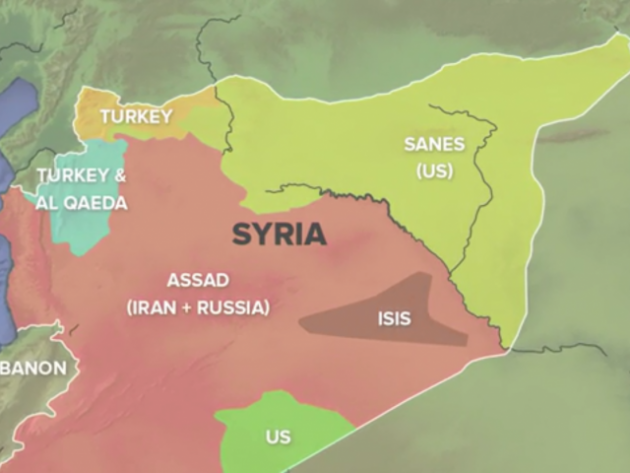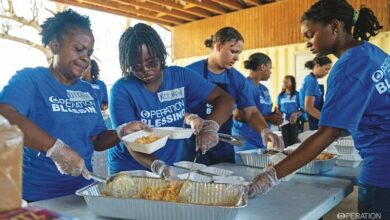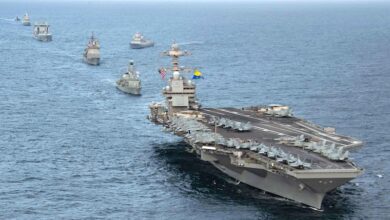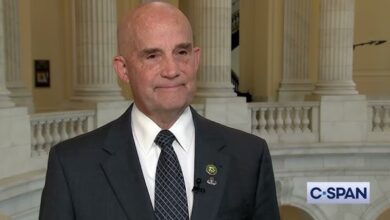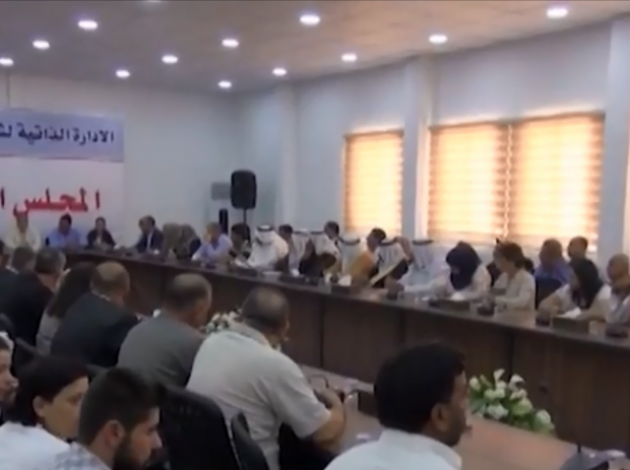
NORTHEAST SYRIA – One of the untold stories unfolding in northeast Syria is the emergence of a representative form of government that represents all the peoples such as the Kurds, Christians and Arabs.
Called the Self Administration of Syria or SANES, it controls a third of Syria between the Tigris and Euphrates Rivers. Some four million people live within its borders.
After the Syrian Revolution began in 2011, the Assad regime started to pull out of northeast Syria. Then the people of this region had to fight both al-Qaeda and, later, ISIS. These two major developments led the people of this region to create a representative form of government not seen in the Middle East before.
“Truly as I have mentioned before, the Self Administration of North East Syria and also in this management, all the minorities from North East Syria from Kurds, Arabs, and Syrians and Turkmen and other minorities,” Abed al-Mehbash, Co-Chair of the SANES Executive Council stated.
It’s a federal system of government like the US and makes the role of women a priority. The charter calls for 40 percent of the representative body to be women.
“Of course, after the revolution in North and East Syria in 2011, the women in Syria in general and especially in northeastern Syria have proven themselves in all fields, and it started with joining the military. By joining the Kasadek forces and the Syrian Democratic Forces in freeing much of the region side-by-side with the men, it has also extended to the administration. Certainly, a woman can be free and support and join in all the campaigns and she can also be perfect for administrative work,” said Beviran Khalid Co-Chair of the SANES Executive Council.
When asked why women are such a priority in this new government, Al-Mehbash said: “Because women are half of the society; men and women complete the society.”
To help women find their place in society, some villages have created women’s centers designed to train women play a role in society. They’ve also made a place for Christians.
“Because this project is democratic and for the first time it has recognized us as Syriac Christians and recognized our language, culture and even our religion,” said Elizabeth Nouria, Vice President of the SANES Executive Council.
Church of the Brethren is the only evangelical church in Kobane. One of the church leaders says this would never have been allowed under the Syrian regime. It’s one more sign of the religious freedom under the SANES.
The new government wrote a social contract in 2014. In their preamble, it states: “the charter proclaims a new social contract based upon mutual and peaceful coexistence and understanding between all strands of society. It protects fundamental human rights and liberties and reaffirms the people’s right to self-determination.”
“It’s completely new. Completely new in the Middle East and I’d say it’s completely new in the whole world,” Karlos Zurutuza, a freelance journalist said.
Zurutuza has covered this new government for several years.
“What these people are actually doing is rebuilding themselves, starting from scratch after decades of repression from the Assad regime. So literally from day one, since 2012, since they liberated their territories, they are in the process of reconstructing civil society, integrated their components in the region; not just Kurds. It’s Arabs, Armenians, Syriacs,” he explained
Zurutuza says this unique experiment could be a bridge to the West.
“I’d say that these people are our natural allies. These people have a model for equality, of a secular society, for democracy…which is happening for the first time in history and which could spread throughout the region because outside here there’s literally nothing similar,” he said.
They look to the US and Europe as their inspiration.
“I am fond of America. The American people are free. They are a democratic people and as a region here we want to create a model like the European countries as people – Muslims, Christians, Yazidis – a community that is a small Europe in the Middle East,” said Ahmed Mousa.
Yet Zurutuza says this is a fragile democracy.
“The Turkish border is right there. Erdogan has always made his plans very, very public. And the regime is controlling the city center here in Qamishli. And there’s also Jihadist factions, Islamists, Daesh, fighting against ISIS even if it’s last pockets still going on,” he warned.
The leaders say their hope is to spread this new democracy throughout Syria rather than form another country. Whether it can survive long enough to make their dream come true, remains to be seen.
–Chris Mitchell, CBNNEWS




